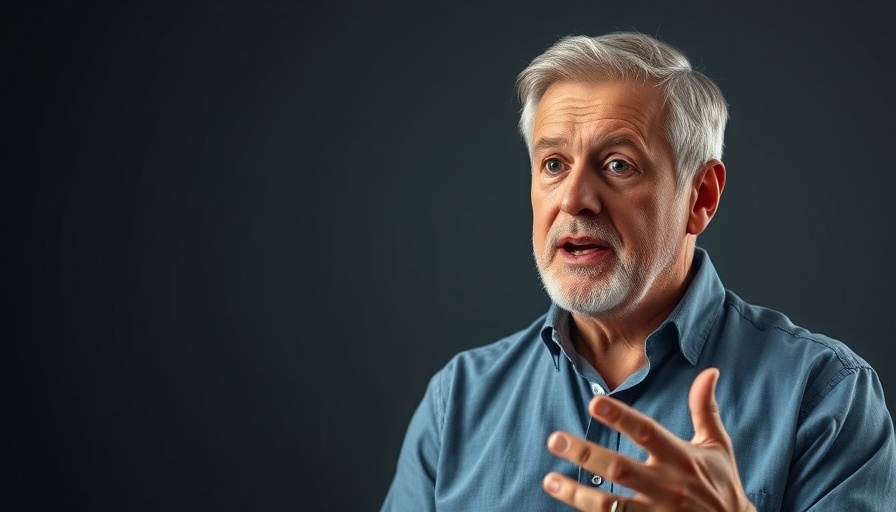
Understanding High Blood Pressure: A Common Concern
High blood pressure, also known as hypertension, is often called the "silent killer" as it frequently shows no symptoms while posing a severe risk to health. Responsible for about 1 in 6 deaths in the United States, hypertension affects millions of adults, leading to significant complications such as heart disease, stroke, and kidney problems. Understanding how to manage and reverse high blood pressure is crucial for maintaining not just physical health but overall mental wellness and quality of life.
In 'How to REVERSE High Blood Pressure,' the discussion dives into essential strategies to manage and potentially reverse this common condition, exploring key insights that sparked deeper analysis on our end.
Natural Remedies: The Power of Lifestyle Changes
While medications can be a crucial part of managing high blood pressure, numerous natural and lifestyle solutions can contribute significantly to reversal efforts. Incorporating stress relief techniques, such as mindfulness exercises and yoga, can greatly enhance mental wellness for seniors grappling with hypertension.
Some effective changes include adopting a heart-healthy diet rich in fruits, vegetables, and whole grains. Moreover, learning how to improve sleep in the elderly can also play an essential role in lowering blood pressure. Insufficient sleep is linked to an increased risk of hypertension, thus sleep hygiene tips for seniors can foster better health. Simple transformations like a calming bedtime routine or engaging in relaxation techniques before bed can pave the way for improved rest.
Social Connections and Mental Health
Social connection is a crucial aspect of mental wellness, especially for seniors. Living alone or suffering from loneliness can exacerbate stress and anxiety, leading to a potential increase in blood pressure. Initiatives that encourage seniors to engage in community events not only help build relationships but also offer natural supplements for sleep and relaxation. By attending groups, seniors can share experiences, find coping mechanisms for loneliness, and manage depression which often accompanies those facing chronic health issues.
Actionable Insights: Your Path to Better Health
Making conscious decisions daily can significantly impact your well-being. One way to start is by setting realistic goals to monitor your blood pressure regularly with the help of a sleep tracker app or keeping a journal. Tracking diet, activities, and stress levels allows for better insight into what affects your health.
Incorporating deep breathing exercises and progressive muscle relaxation into your daily routine can combat anxiety, thus helping in the management of hypertension. Aromatherapy, using essential oils like lavender or chamomile, also offers gentle, relaxing benefits that can ease the mind and body.
Benefits of Better Sleep on Mental Health
A vital yet often overlooked aspect of halting high blood pressure is the importance of sleep for brain health. Seniors face unique sleep challenges, including disturbances from sleep apnea and the impacts of medication. Addressing these issues through relaxation techniques, calming activities before bedtime, and even herbal remedies for insomnia can lead to better sleep quality. A well-rested individual is better equipped to manage stress, stay active, and engage socially, all of which contribute to healthy blood pressure levels.
Building Emotional Strength: Personal Resilience Strategies
As you embark on your journey to reverse high blood pressure, consider building emotional strength as a key strategy. Engaging in gratitude practices for mental health and participating in mental wellness workshops can establish a solid foundation for resilience. Our ability to manage stress and maintain a positive outlook is essential to not just emotional well-being but also physical health.
An essential component in strengthening emotional resilience is seeking help when needed—be it from support groups or one-on-one conversations with friends or professionals. This creates a layer of accountability and guidance as you navigate your health journey.
In conclusion, while reversing high blood pressure requires a multi-faceted approach that includes physical, mental, and emotional strategies, taking these steps can lead to significant improvements in overall health. By prioritizing lifestyle changes, fostering social connections, and focusing on mental wellness, seniors can significantly impact their blood pressure levels and improve their quality of life.
Start today—embrace the ideas discussed here to pave the way for a healthier, happier you!
 Add Element
Add Element  Add Row
Add Row 



Write A Comment